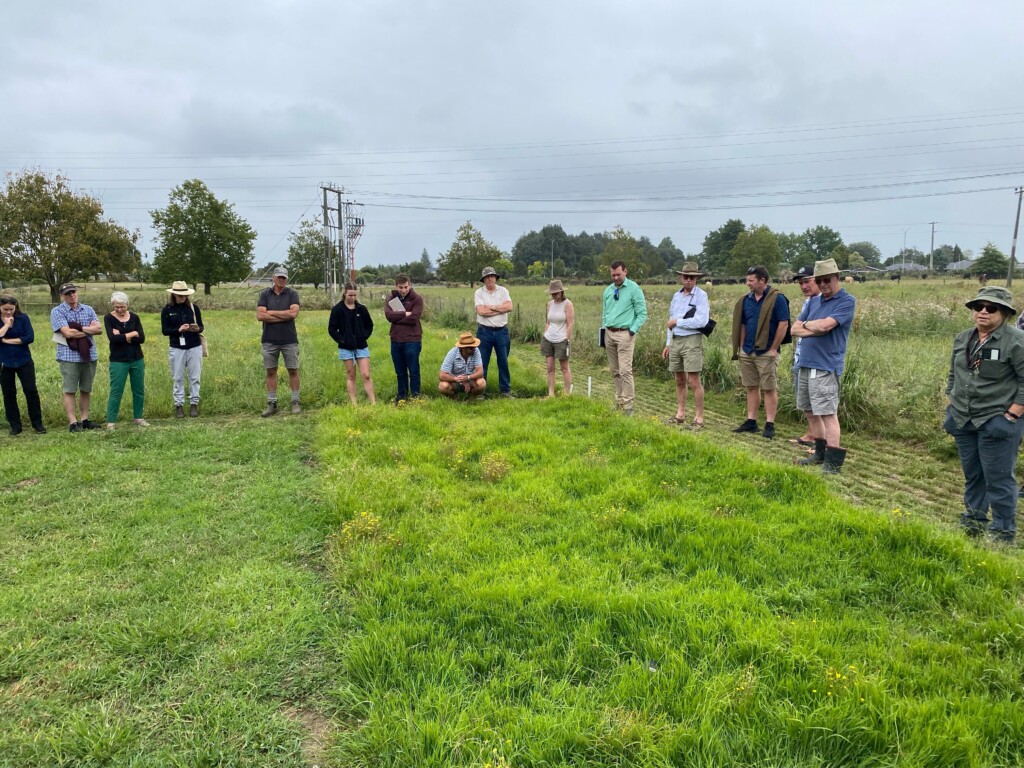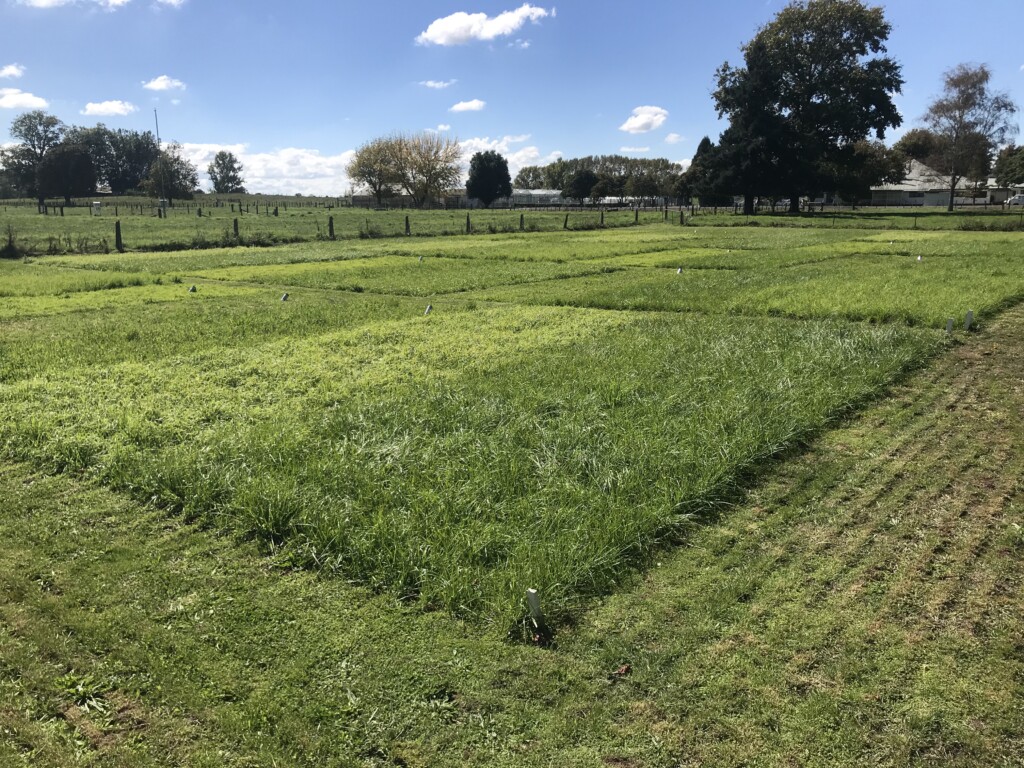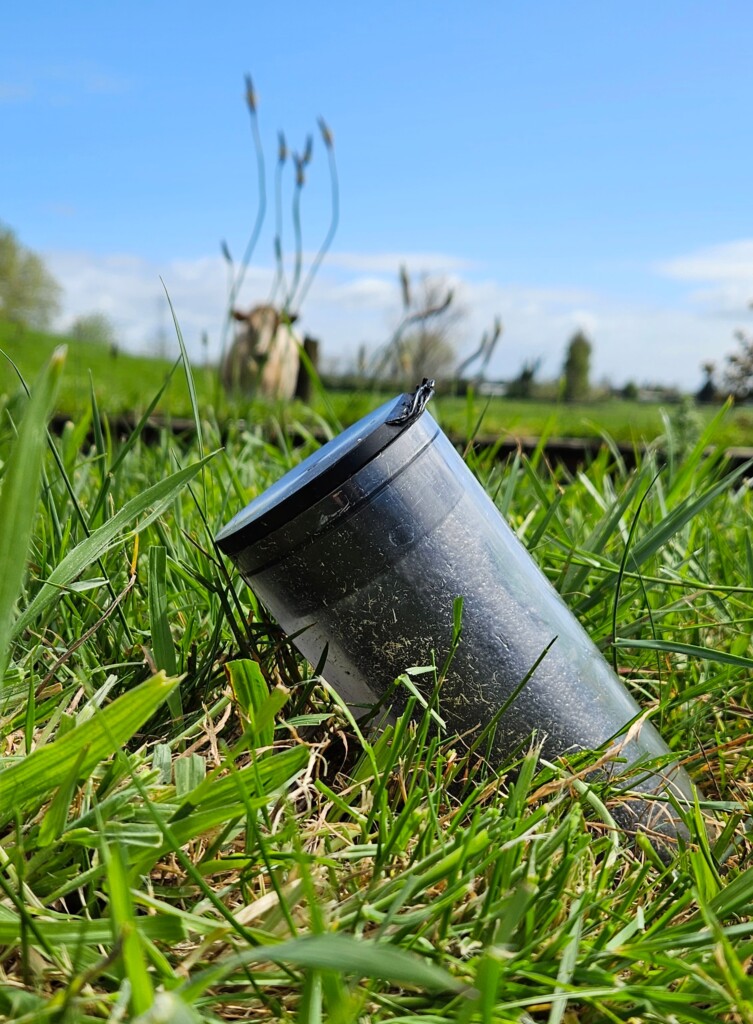New Zealand farmers invest significant time and resources into selecting and planting pasture species that can withstand the challenges of climate change. New research led by AgResearch is providing valuable insights to help farmers make informed decisions about the best pasture species for their farm systems.
With support from the T.R. Ellett Agricultural Research Trust, the Production and Persistence of Alternative Pasture Species project has been extended beyond its original June 2024 completion date. This additional funding enables a more in-depth analysis, leveraging innovative technology to collect high-quality data with minimal impact on plants.
AgResearch Senior Scientist Dr. Katherine Tozer leads the project, working closely with Research Associate Dr. Tracy Dale and Waikato University Master’s student Tynealle Balfour. Their research examines eight different grass species—perennial ryegrass, cocksfoot, tall fescue, meadow fescue, pasture brome, phalaris, kikuyu, and microlaena—through a mown plot trial at the Ruakura Research Centre near Hamilton. Key data collected includes seasonal herbage growth, tiller densities, ground cover, nutritive values, weed ingress, and root growth.
A key aspect of this study is the use of a minirhizotron system to capture below-ground root data without damaging the plants. While common overseas, this technology is relatively new to New Zealand pasture research. Transparent, 7 cm-wide, 1 m-deep polycarbonate tubes are installed in the ground, allowing a cylindrical camera to capture 360-degree images of root systems over time. This non-destructive method provides valuable data on root length, surface area, and growth patterns, offering insights into how root development influences pasture persistence.
“We expect to see some species perform better than others, and root development is likely a key factor,” says Tynealle. “My master’s research focuses on understanding how root growth relates to persistence and how above-ground management can support deeper, stronger root systems. These findings could also inform plant breeding, helping to develop cultivars with improved persistence.”
The research team collaborates closely with Beef + Lamb New Zealand and DairyNZ, ensuring findings are relevant to both hill country and dairy farmers. Two field days have already been held, allowing industry representatives and farmers to engage with the research, ask questions, and share insights that help refine the study’s focus.
One of the Ellett Trust’s core missions is to support the development of researchers and students. By funding this research, the Trust has enabled Tynealle to pursue her master’s degree while contributing meaningful work to the farming sector.
“I feel honoured to be part of this research,” she says. “It’s my way of giving back to the rural community and supporting farmers in their productivity and profitability. The results will be a valuable industry resource, and I’m incredibly grateful to the Ellett Trust for making this possible.”
With two years remaining in the project, the research is gaining momentum. Dr. Tozer, Dr. Dale, and Tynealle Balfour are beginning to see clear patterns emerge, both above and below ground. They look forward to sharing their latest findings at the next field day, scheduled for Autumn this year.



